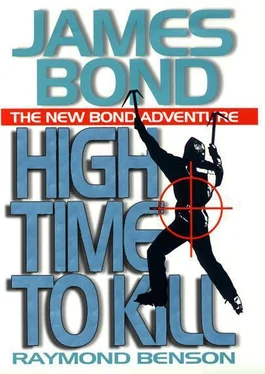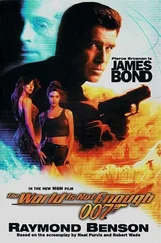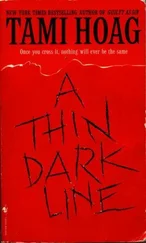It looked as if he might realize his goal that afternoon in Kathmandu. It was just after lunch and he was sitting in a blue Tata jeep, one of the many used by the Nepalese police. Across the road was the famed Hotel Everest, isolated out on the Ring Road away from the central city in the section known as Baneshwar. One of the top hotels in Nepal, it was formerly the Everest Sheraton and it still maintained a very high standard with a bar, restaurants, sports facilities, disco, casino, and mountain views from upper floors.
The sergeant to his left was speaking Nepali into a walkie-talkie. Three policemen were ready to enter the hotel, burst into the room occupied by a Chinese man, Mr. Lee Ming, and arrest him for inter-national espionage. Extradition papers had been filed in a hurry, and after intense negotiations between Britain, India, and Nepal, it was agreed that Zakir Bedi, in representing Britain, could enter the country, observe the arrest, and take charge of the prisoner. Inside his air-conditioned room, Lee Ming lay on his bed, fighting the stomach cramps that had held him in a viselike grip since the night before. As he had become older and developed heart problems, he didn’t travel well. He realized that he never should have volunteered for this assignment. Still, the money would be good if he ever made it back to Beijing.
He had been in Kathmandu a little over twenty-four hours and had slept very little. His body wasn’t adjusting to the time change. After all, he had been in Belgium for three weeks and had undergone exhausting surgery. Now he was very tired and wished he could just sleep for a few hours. The problem was the edginess he felt because he didn’t know when he would be contacted for the surreptitious escape into Tibet. He had to be ready at a moment’s notice, which meant he couldn’t leave the hotel—not that he felt like doing so.
He was just beginning to doze, when there was a loud knock at the door. Lee groaned, then pulled himself out of bed to answer it. When he opened the door, three rough-looking Nepalese men rushed inside.
“Shhh,” one said, holding his finger to his lips. All three were short and stocky, and one had a black mustache. Obviously the leader of the group, he went to a window and pulled back the shades an inch. He gestured for Lee to come and look.
The blue jeep and two men were down below. One was dressed in the traditional dark blue trousers, light blue shirt, and V-necked woolen sweater with badges of rank and medals attached. He wore a faded maroon beret and black combat boots.
“Police?” Lee asked.
The man nodded. “Come with us now. We get you out of Nepal,” he said in hesitant English.
Lee said, “Okay. Let me grab my—”
“No. Just come.” The man spoke a stream of Nepali to his companions. One of them opened the door and looked in the hallway. He waved, indicating that it was all clear.
The men ushered Lee out of the room and to the fire escape stairs. Lee, unable to move quickly, was immediately a burden. Two of the men locked arms, picked him up, and allowed him to sit on them as they carried him down the stairs.
The Nepalese policemen entered the hotel and took the lift to Lee’s floor. They arrived just as Lee and his rescuers came out of the stairwell on the ground floor and made their way toward one of the restaurants.
They pushed around a group of tourists, then went through the restaurant and into the kitchen. There, the leader spoke Nepali to one of the chefs, who gave him a large burlap bag normally used to sack potatoes.
“Put this on,” the man said to Lee.
“What?”
Without wasting any more time, the man threw the bag over Lee’s head. Lee began to protest, and the man said, “Shut up! Don’t make a sound!”
Lee quieted down and allowed himself to go through this humiliation. The burlap bag completely covered him. Since he was a small, lightweight man, it was easy for one of the men to pick up the bag and haul it over his shoulder—like a sack of potatoes.
The three men hurried out into an alley with the bundle. There they loaded Lee into the back of a pickup that was full of real sacks of potatoes. He grunted loudly as they dropped the bag on top.
“Quiet!” the leader said again. “You are in truck. We drive to airport. Silence!”
The men got into the truck, backed out of its space, and took off down Arniko Rajmarg toward the Kathmandu airport.
Zakir Bedi noticed the potato truck pulling out from behind the hotel and heading southeast, but there were dozens of such trucks making deliveries to hotels in the area. He turned his gaze back to the front of the hotel, awaiting word from the men inside.
Upstairs, one of the Nepalese policeman raised his hand to knock on Lees door but realized that it was ajar. He kicked it open to find the room empty. He swung the walkie-talkie to his mouth and shouted.
Bedi, who understood Nepali, heard the report and cursed.
We have to find him!” he said to the sergeant. They got out of the Jeep and ran inside the hotel. The two policemen met them in the lobby. They agreed to spread out and cover every conceivable exit.
Bedi was running toward the casino when he passed the restaurant. Going on a gut feeling, he asked the maître d’ if he had seen a Chinese man come through there. He flashed a photo of Lee. The maître d’ made an affirmative noise and pointed to the kitchen. Bedi shouted into his own walkie-talkie and ran through the restaurant.
The other policemen met him in the kitchen, where the leader questioned the chefs. Finally, one of them admitted being paid to hide the Chinese man in a potato sack.
“Potatoes?” Bedi asked. “I just saw a potato truck leave the hotel. They’re headed for the airport! Let’s go!”
The policemen and Bedi rushed outside to the jeep and took off in pursuit.
Tribhuvan International Airport is located four kilometers southeast of Kathmandu and is the country’s single international air entry point. Built in 1989, it handles over a thousand passengers per hour, quite an improvement over the old terminal with lines trailing out the doorway and an open-air waiting lounge. Among the international and domestic flights that operated out of Tribhuvan, several private tourist agencies offered sightseeing trips from the airport.
The potato truck sped into the airport, jostling Lee Ming and the potato sacks with every bump in the road. They passed the main terminal and drove around to the private hangars. One sight-seeing operation, a British-run company called Above the Earth Flights, was preparing to send a twin-propeller plane around the Himalayas with a group of ten to fourteen British and American passengers. The truck, however, shot past the line of tourists and headed for another hangar, where a single-prop plane was fueled and waiting with the pilot on board.
The truck halted with a screech and the men poured out. They quickly pulled the burlap bag out of the back and freed their Chinese client.
“You fools!” Lee cried. “All that bumping could have opened up my chest!”
“Shut up and get in the plane,” the leader ordered. “Do as we say or you’ll be arrested. The police are right behind us!”
Lee grumbled and walked toward the plane. “Is this thing safe?” he asked.
Behind Lee’s back, the leader looked at his other two companions and gave the signal they were waiting for.
The jeep, meanwhile, drove into the airport complex at a high speed. The sergeant contacted airport security and was told that a potato truck had been seen near the private hangars. He directed the driver to pull around the terminal. They also passed Above the Earth Flights, and then saw the single-engined four-man plane taxiing, ready to move toward the runway.
“Stop that plane!” Bedi shouted.
Читать дальше










